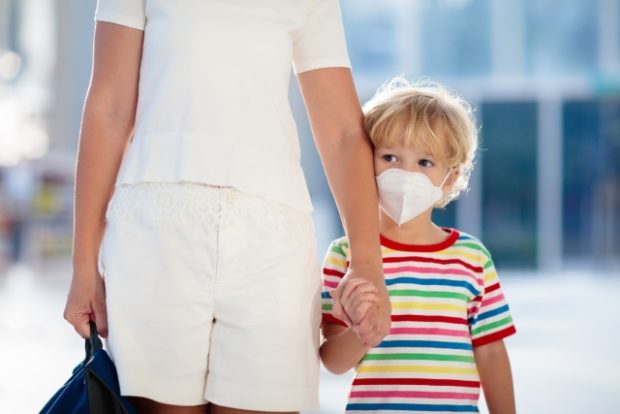The Kawasaki-like syndrome found in children with COVID-19 is a new, different condition says study

Image: FamVeld/IStock.com
New research suggests that the severe inflammatory syndrome observed in children during the COVID-19 pandemic is new and distinct from Kawasaki disease.
Led by researchers from Imperial College Academic Health Science Centre (AHSC) along with Great Ormond Street Hospital (GOSH) and the Evelina London Children’s Hospital, UK, and the Kawasaki Disease Research Center at the University of California San Diego, the new study looked at 58 children admitted to eight hospitals in England who exhibited symptoms of the new syndrome.
The condition was first observed in April, when children in the UK and other European countries with high numbers of coronavirus disease (COVID-19) cases showed symptoms of a new inflammatory syndrome, similar to Kawasaki disease. Kawasaki disease is a rare syndrome that affects young children and which damages the coronary artery so that as the child grows, the artery doesn’t grow with them, reducing the amount of blood that can reach the heart.
After observing the children in their study, the researchers identified the main symptoms and markers of the condition, which they have named Pediatric Inflammatory Multisystem Syndrome Temporally associated with SARS-CoV-2 (PIMS-TS), a different condition to Kawasaki disease.
The researchers, who have detailed their findings in the Journal of the American Medical Association, say that PIMS-TS appears to affect older children — on average 9 years old — than Kawasaki disease, which affects those around four years old. It also appears to affect a higher proportion of Black and Asian patients.
They also found that symptoms of PIMS-TS are more likely to include abdominal pains and diarrhea than Kawasaki disease, and that the results of the blood tests also showed differences to Kawasaki disease, with the PIMS-TS patients showing more markers of inflammation and cardiac enzymes, which suggest the heart is under strain.
The researchers found that 45 of the 58 children had evidence of current or past COVID-19 infection, so they cannot be sure that PIMS-TS is caused by COVID-19. However, they say it is unlikely to be a coincidence that a new condition has appeared during a pandemic, they say.
The condition is thought to be extremely rare; less than 200 cases reported in England and most children have already recovered. However, there are worries that the condition could cause long-lasting coronary damage.
“The new condition, PIMS-TS, is extremely rare but it can make a child very ill, so it’s important to characterize the disease properly so we can provide close monitoring and the best treatment,” said lead author Dr. Elizabeth Whittaker.
“For any parents worried about their children, I would urge them to follow their usual instincts — whatever would normally prompt you to visit your GP or A&E with your child still applies here.”
“Our analysis has shown that this is indeed a new condition. Untreated, there is a risk of severe complications in very unwell children, but with early identification and treatment the outcome is excellent, with the children we are reviewing after discharge completely well,” added researcher Dr. Julia Kenny. NVG
RELATED STORIES:
COVID-19 linked to stroke in healthy young adults, says preliminary research
For more news about the novel coronavirus click here.
What you need to know about Coronavirus.
For more information on COVID-19, call the DOH Hotline: (02) 86517800 local 1149/1150.
The Inquirer Foundation supports our healthcare frontliners and is still accepting cash donations to be deposited at Banco de Oro (BDO) current account #007960018860 or donate through PayMaya using this link.